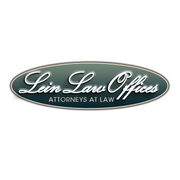4 Personal Injury Tips for Handling the Auto Insurance Adjuster

When you’ve been injured in an auto accident, you’ll need to deal with the other driver’s insurance adjuster at some point. For most people, this task is intimidating and confusing. While it’s strongly recommended to have the guidance of a personal injury attorney before speaking with the opposing insurance company, the following steps will help ensure a fair outcome for your claim.
How to Handle the Insurance Adjuster During a Personal Injury Claim
1. Understand the Adjuster’s Goals
When the insurance adjuster first contacts you, they may seem friendly and empathetic. However, at the end of the day, their goal is to pay as little as possible regarding your claim. That means they’ll often pretend they’re on your side, especially if they feel your case could cause them a significant loss.
Don’t fall for this tactic; if you become too friendly with an insurance adjuster, you may make casual comments about your injuries or the accident that end up hurting your chances when you file a claim. For example, if the adjuster asks how you’re doing when you answer the phone and you say something noncommittal like, “Fine,” that answer could be used to claim your injuries aren’t as severe as you say they are.
2. Beware of Surveillance
 Some insurance adjusters will examine your social media for evidence that could harm your case. Don’t post about your injuries or the accident, and avoid sharing any kind of information that could make your claim seem less serious than it is, such as photos of yourself walking the dog or out with friends. Similarly, be wary if someone you don’t know tries to contact you online.
Some insurance adjusters will examine your social media for evidence that could harm your case. Don’t post about your injuries or the accident, and avoid sharing any kind of information that could make your claim seem less serious than it is, such as photos of yourself walking the dog or out with friends. Similarly, be wary if someone you don’t know tries to contact you online.
3. Don’t Give a Recorded Statement Under Pressure
If your insurance adjuster tells you you must give an official, recorded statement before you can file your claim, don’t buy it. You have the right to file your claim and speak with a personal injury attorney before making any recorded statement.
In fact, Wisconsin Statute s. 904.12 aims to prevent insurance companies from using any statements you make within 72 hours of an accident against you. Even after that period, you’re not required to provide a recorded statement.
4. Don’t Settle Under Pressure
The other driver’s insurance adjuster may pressure you to settle before your injuries have been fully diagnosed. If you agree, the insurance company will estimate your future medical expenses and require a full release of liability.
That means that if your diagnosis is more severe and your medical bills are more expensive than the company estimated, you’re the one who will have to pay. Avoid this predicament by waiting until you receive a full diagnosis to settle.
While insurance adjusters have many tricks up their sleeve, personal injury attorneys know how to counteract them. The team at Lein Law Offices has been helping injured people get the compensation they deserve for more than 35 years. With locations in Hayward and Winter, WI, they’ll guide you through every step of your claim so you can remain calm and confident. Learn more about their compassionate services online and call (715) 634-4273 to schedule a consultation.
About the Business
Have a question? Ask the experts!
Send your question

